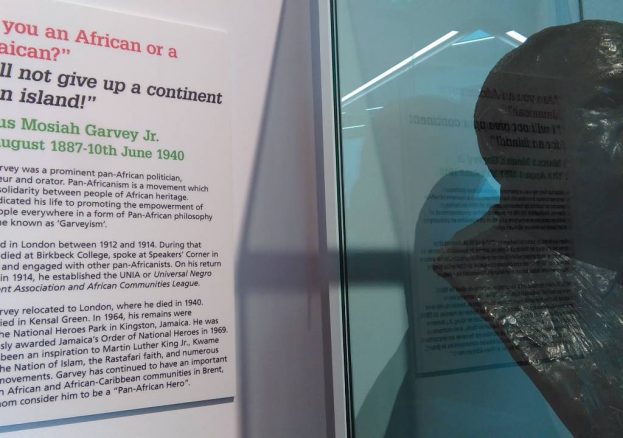
Jamaican High Commissioner Mr Seth George Ramocan and Ghanaian Deputy High Commissioner Mrs Rita Tani Iddi were the special guests at the recent inaugural Marcus Garvey Annual Pan-Africanism Presentation at Willesden Green Library in the north-west London borough of Brent.
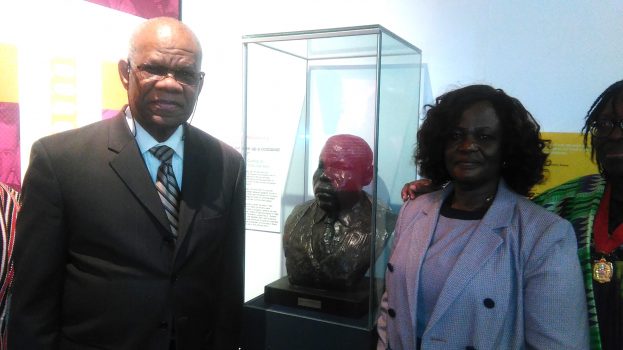
The event, which follows on from last year’s installation of a bust of Jamaican-born pan-Africanist icon Marcus Garvey in Brent Museum, was attended by a capacity audience. It consisted of the screening of the ‘Highlighting Marcus Garvey, UNIA & Garveyism Through Film’ documentary made by Friends Of Marcus Garvey Bust (FOMGB) Collective co-ordinator and local community historian Kwaku, presentations by Garvey researcher Everol Wilson, the two High Commissioners, plus Garvey-influenced reggae music, and contributions by Garveyites and community activists.
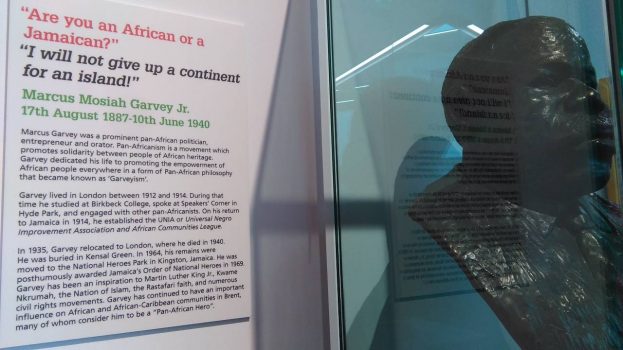
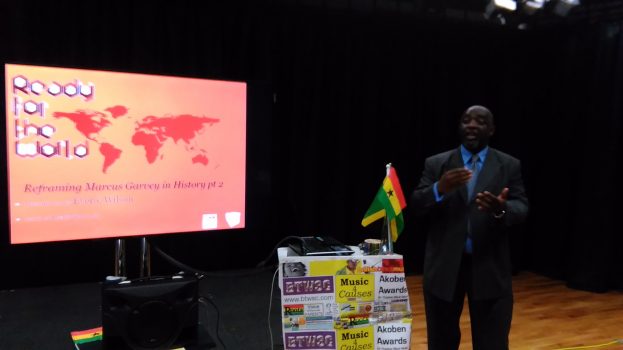
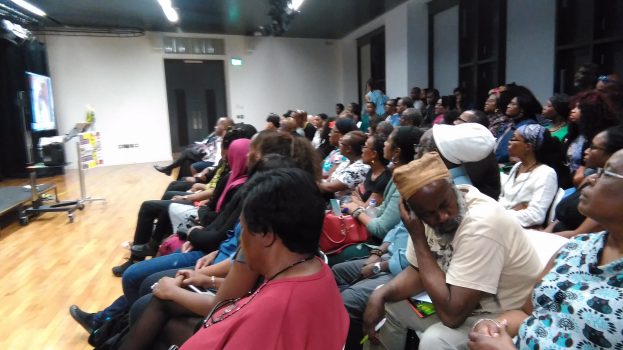
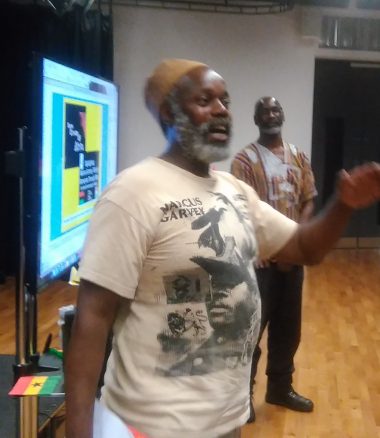
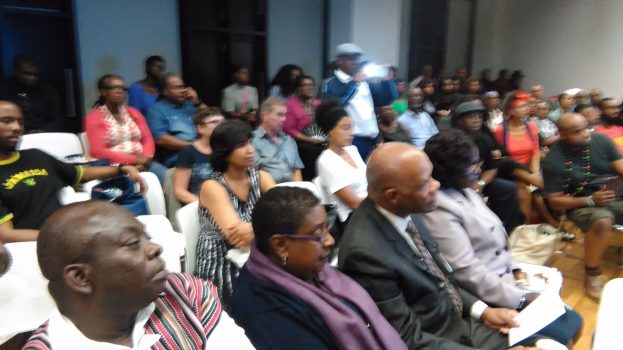
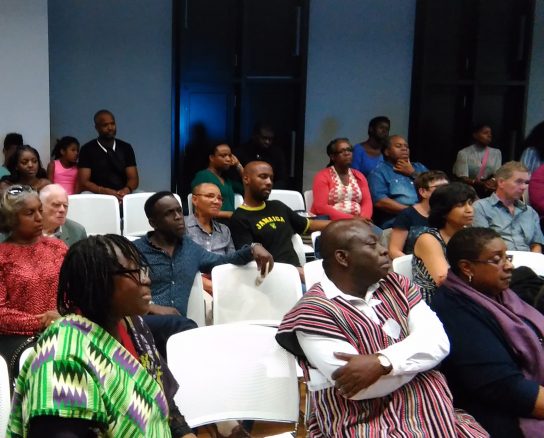
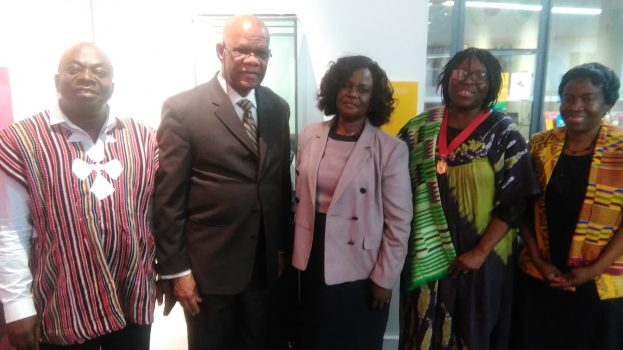
Mr Ramocan highlighted notable Jamaicans who had come before Garvey, such as Nana (Nanny) of the Maroons, who fought the British for their liberation in Jamaica, and Dutty Boukman, who gave inspiration to the Haitian Revolution.
“It is in this tradition that Garvey walks. Garvey was not just Jamaican, he was a global citizen. He was one who saw the need for liberation and bringing dignity to peoples who were oppressed,” said the High Commissioner.
He also pointed out the esteem to which Garvey was held by Martin Luther King. On laying a wreath in 1965 at the shrine of Marcus Garvey in Jamaica, the African-American civil rights leader said that Garvey gave impetus to the US civil rights movement.
“We have to be able to see Marcus Garvey as going beyond the African people only, but to the peoples of the world. And it’s a message that needs to be told, and needs to be understood. And that is why I congratulate Kwaku for this presentation he has put on here today. Because what it says to us is that we must not cause this message and this vision to die. It’s a vision for all peoples who are oppressed across the world,” said the High Commissioner.
“Today, the message of Marcus Garvey is brought round the world by reggae music,” continued Mr Ramocan. He pointed to the uplifting power and message in reggae that gave encouragement to various movements. Reggae has been used by political rivals in Nicaragua. Chinese student activists sang ’Get Up Stand Up’ during their protests. Germans bringing down the Berlin Wall sang ‘Three Little Birds’. Both are songs by Bob Marley.
“Today, if you go to the place where the Berlin Wall was, there are pieces of the Berlin Wall still left there. And on it is featured the music of Bob Marley and the message of Garvey, which brought about liberation to the people.”
In pointing out that many people around the world know of Marley, he added: “Reggae was not simply music. Reggae was a message – it was the gospel of Marcus Mosiah Garvey taken across the world that has brought liberation to many, many countries.”
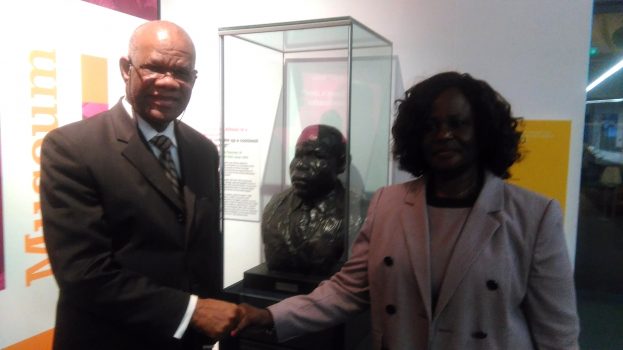
“I’m pleased that we’ve had the opportunity to reflect on the ideas and actions of Marcus Garvey. As we all know, and have had it echoed this evening, Marcus Garvey was one of the prominent icons of the continued struggle for racial equality and empowerment of people of African descent,” said Mrs Iddi.
“We’re grateful for the opportunity to acknowledge the influence of the ideas of Marcus Garvey on our own struggle for independence as a nation. Some of which have been immortalised as symbols of our nationhood, such as the Black Star Line, the Black Stars, which is the name of the national football team, and note also the rising black star in our national flag.”
Indeed, it’s worth pointing out that within the W.E.B. Dubois Memorial Centre For Pan African Culture in Accra, Ghana is the Marcus Garvey Guest House. Also, Ghana’s first prime minister and president Kwame Nkrumah, did acknowledge in his 1957 biography that the book which influenced him the most was ‘Philosophy And Opinions Of Marcus Garvey, Or Africa For The Africans’.
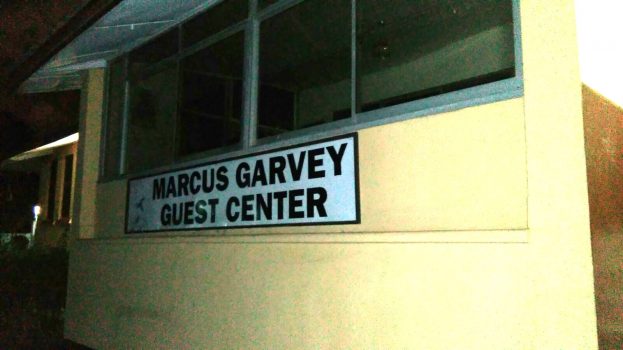
We can not “ignore the significance of the lessons of history,” continued Mrs Iddi, before repeating one of Garvey’s famous quotations: “A people without knowledge of their past history, origin and culture, is like a tree without roots,” to which she made reference to the recent racially-motivated disturbances and death in Charlottesville.
“The lessons of Charlottesville remind us that even though progress has been made in the struggle for racial equality, a lot more needs to be done,” she warned.
“I’m glad that the High Commissioners of Jamaica and Ghana supported the event, so as to underscore the fact that Garvey represents not only Jamaica, but also global Africa,” said Kwaku.
The Friends Of Marcus Garvey Bust Collective, which campaigned for the Garvey bust to be installed as a permanent exhibit in Brent Museum, aims for the presentation to be an annual event on Garvey’s August 17 birthday.
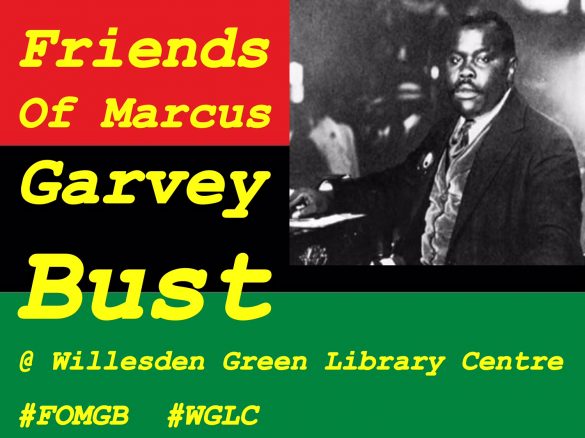
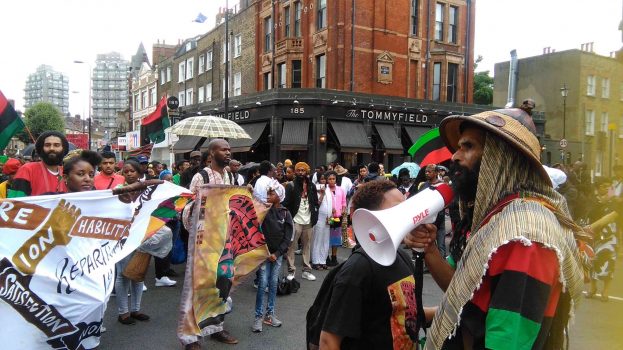
“Just as the first of August is slowly becoming a fixture in the African British calendar as the day for the Reparations March in London, we aim to make the 17th of August a regular event in Brent, where we celebrate Marcus Garvey’s birthday and highlight pan-African issues,” explained Kwaku.
The presentations will not only espouse the life and work of Garvey, but also other pan-Africanists, and also highlight the relevance of pan-Africanism in today’s world. Next year’s topic ‘Pan-Africanism For Beginners, And Highlighting The Essence Of The Legacies Of Marcus Garvey And Kwame Nkrumah’ seeks to also attract young people and new comers to pan-Africanism.
As a special treat at this year’s event, in marking the 130th anniversary of Garvey’s birth, Natalie Ford, a young woman of Jamaican heritage who has taken up the Garvey call for entrepreneurship, provided free afternoon tea.
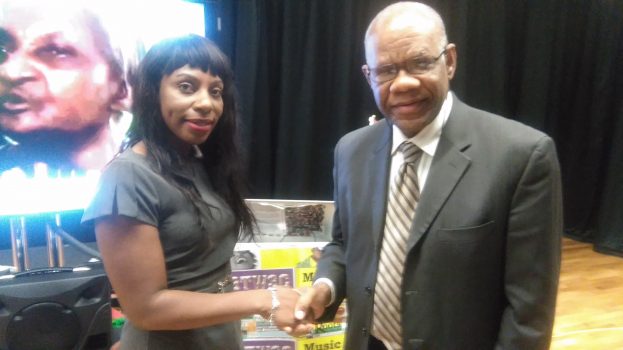
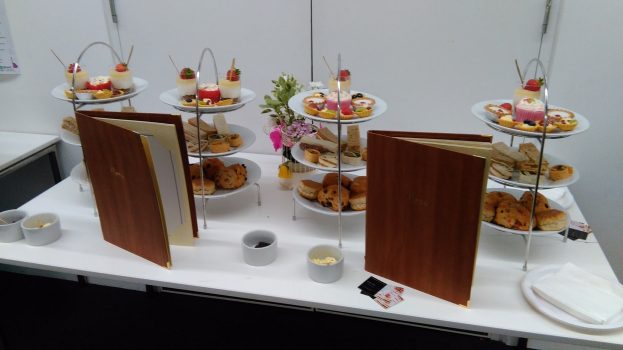
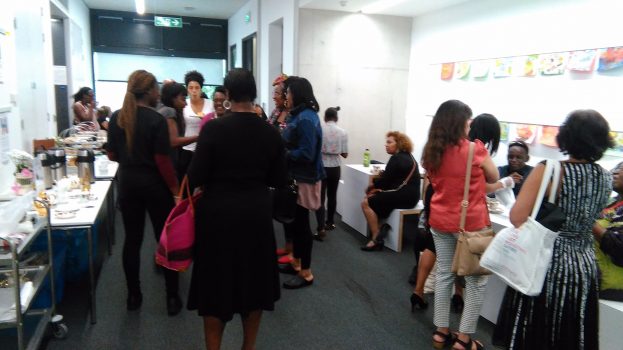
The event was organised by BTWSC/African Histories Revisited in association with Brent Museum & Archives.
The Garvey bust in Brent Museum is located within Willesden Green Library Centre. The beginning of the legend by the bust highlights Garvey’s position as a pan-Africanist. Asked “Are you an African or Jamaican?” He replied: “I will not give up a continent for an island.”

Garvey was the leader of the Universal Negro Improvement Association-African Communities League (UNIA-ACL), which at its peak in the 1920s had a membership estimated between 6-12 million spread across the world, from the US, Jamaica, Trinidad, Cuba, Costa Rica, Gold Coast (Ghana), Nigeria, South Africa, Kenya, India, to far-flung places such as New Zealand.
Among UNIA-ACL’s enterprises of the 1920s was the famed Black Star Line shipping business, which was meant to facilitate travel and trade between Africans on the continent, the Americas and Caribbean.
The next Presentation is on Aug. 17 2018. For more information: btwsc@hotmail.com.
Click here to view photo gallery.
(c) 2017 Kwaku. Kwaku is a music industry and history consultant. He’s also the co-ordinator of Friends Of Marcus Garvey Bust Collective and African Histories Revisisted: www.AfricanHistoryPlus.eventbrite.com
